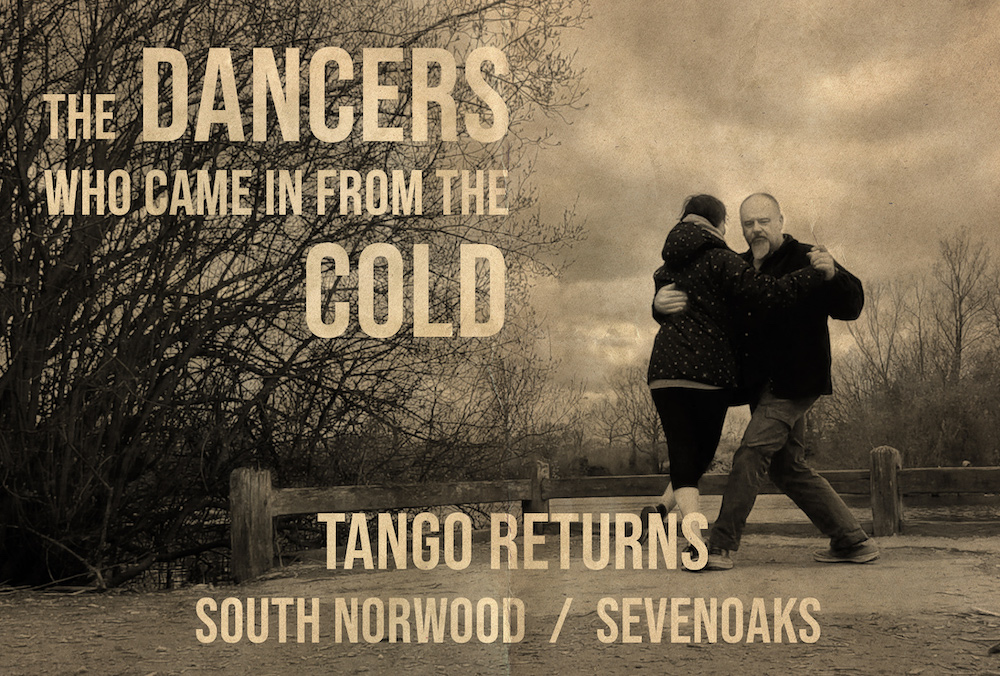
The Tangosynthesis Blog
with Graham and Nathalie
Classes are Back!
23 Jul 2021 - by Graham
This is the first week that we have been able to run classes in forever, and it was a great feeling to get back into our venues. Well, one of our old venues and one new one... but more about that later. It was great to see so many familiar faces there - as well as some new people who somehow heard about us during the down-time - and you are all very very welcome. It is strange that in some ways it feels like we have hardly been away, and yet in others it's almost impossible to remember what classes were like in the BC era*. Coming back was something that was very familiar, and yet getting ready on Wednesday afternoon for that first evening class in South Norwood was almost as stressful as getting ready for my first ever class in Bletchingley all those years ago. I [read more...]
Dancing... As It Was Before
07 Jun 2021 - by Graham and Nathalie
As dance classes and events start to be posted in our calendars, and plans are made for some sort of normality to return to the dance world, many people have been asking how we will be running our events in the post-pandemic landscape. Some people would like to see an immediate return to the way we used to do things before March 2020, whilst others would like to see some form of restrictions carry on for an as-yet undefined length of time or until some goal has been reached. Since it is impossible to do both of those things at the same time it falls to individual dance and event organisers to set their own policy or approach and to decide how they will implement it at their events. This is how we have arrived at our decision. In March 2020 when the world first became aware of the [read more...]
Back to the Floor
27 May 2021 - by Graham
A year of no social interaction... a year of no dancing or physical contact of any kind. The arguments will run and run as to whether this approach was the best way to go or if it caused more harm than it prevented, but whatever the outcome of these debates might be, we are finally in sight of the end. And that means that real in-person dancing is back on the calendar. If you have been listening to The Dance Show on Jivebeat Radio then you will know that more and more dance organisers have begun to release re-opening dates and announce that classes and events are coming back to life. Some places have re-opened already with a few restrictions in place to comply with the current regulations, and many more are planning a grand re-opening on the week of the 21st June. We are delighted to be [read more...]
2020 - A Year in Review
04 Jan 2021 - by Graham
Well, that was a year. Normally in the first newsletter or blog post after Christmas I would write about all the things that have happened over the last twelve months. I would talk about the festivals we have attended, the concerts we have put on, the achievements and high spots of the year, and what we had planned for the future. But this has been 2020, and as we all know there has been nothing happening anywhere since March. It was the year that dancing stopped. This shutdown has hit the dance and events sectors particularly hard. They are arts industries, and so they are seen as ‘less important’ than other areas by some people and have received very little support. But for many of us our art is not just something we do, it is what we are, and to have that taken away from us by [read more...]
Jivebeat Radio
26 Aug 2020 - by Graham
One of the projects that I started during lockdown was to set up a small internet radio station to keep people connected to the music and to their dance classes. This was initially just aimed at the people who already danced with us at Tangosynthesis, and I would play the music that they knew from our XTango events and from our earlier LeRoc freestyles. I was not expecting big audiences, but if it could help a few people who were stuck at home missing the dancing then I would be more than happy to call that a success. When I started the radio station I assumed that it would only last as long as lockdown, and then as restrictions ended and things began to return to normal I would slowly start to phase it out. But the shows have proven to be surprisingly popular, especially considering that I have [read more...]
Click on the keywords to see related posts. You can use the Permalink to reference a specific post.
Navigation
[Older] - [Newer] - [Latest]
Search By Keyword
All Articles2020
Alternative
Anniversary
App
Argentine Tango
Beginner
Beginnings
Boleo
Christmas
Classes
Comparison
Dance Classes
Difficult
EITF
Evolution
Exercises
Expert
Festival
Freestyle
Guest Teaching
Isolation
Learning
Leroc
Lockdown
Milonga
modern
Music
Neotango
New Year
Nuevo
Pandemic
Price Changes
Radio
Review
Sevenoaks
Tandas
Tango
Tangocrisis
Teaching
Traditional
vals
Virus
X-Tango
XTango







